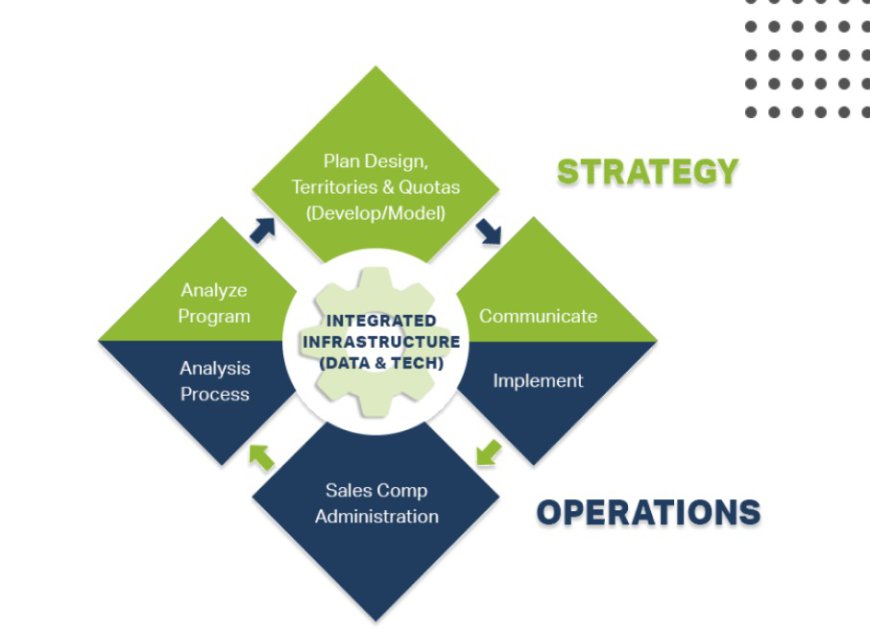Unveiling Sales Performance Management

In today’s rapidly evolving business landscape, staying ahead requires a combination of technology, strategy, and continuous learning. At Open Symmetry, we understand the critical role that Sales Performance Management (SPM) plays in achieving organizational goals. But what is SPM, and why is it the cornerstone of successful businesses? Let’s explore.
What is SPM?
Sales Performance Management (SPM) refers to a comprehensive framework designed to optimize sales processes, align team efforts with corporate goals, and improve overall business outcomes. SPM encompasses planning, tracking, and rewarding sales performance, ensuring that every aspect of the sales cycle is aligned for success. It’s more than just software; it’s a strategic approach that integrates people, processes, and technologies.
SPM Meaning in Business
In the business world, SPM is not just about hitting targets; it’s about understanding how sales efforts impact broader organizational objectives. By leveraging data-driven insights, SPM enables businesses to identify trends, forecast outcomes, and adapt strategies in real time. It also fosters transparency and accountability, creating an environment where sales teams are empowered to excel.
Commercial vs. Enterprise: The SPM Perspective
When discussing SPM, a common debate arises: commercial vs. enterprise solutions. Commercial SPM systems cater to smaller or medium-sized businesses, emphasizing ease of use and cost-effectiveness. In contrast, enterprise SPM solutions are built for large-scale organizations, offering advanced features like integration with HCM systems and deep analytics.
For example, Varicent ICM, a leading incentive compensation management solution, provides scalable options tailored to diverse organizational needs, making it a favorite among both commercial and enterprise users.
SPM Technologies: The Driving Force Behind Success
SPM technologies have revolutionized the way businesses manage sales. From incentive compensation management to performance tracking, modern solutions offer a suite of tools to:
- Automate complex compensation calculations.
- Provide real-time performance dashboards.
- Offer predictive analytics for better decision-making.
Platforms like Varicent ICM exemplify the power of SPM technologies by enabling organizations to handle intricate compensation structures while maintaining accuracy and compliance.
The Role of Anthony Hutchins in SPM
A notable figure in the world of SPM, Anthony Hutchins, has been a pioneer in shaping modern sales strategies. His insights into aligning sales performance with business objectives have transformed how companies approach SPM training and implementation. Hutchins emphasizes the importance of integrating SPM technologies with HCM systems to create a seamless ecosystem that nurtures talent while driving results.
SPM Training: Empowering Teams for Excellence
Effective SPM training is crucial for maximizing the benefits of sales performance management systems. Training programs should cover:
- Understanding the core functionalities of SPM platforms.
- Leveraging analytics for strategic decision-making.
- Aligning individual goals with organizational objectives.
When implemented correctly, training empowers teams to use SPM technologies efficiently, fostering a culture of accountability and performance.
Varicent ICM: The Gold Standard in SPM
Varicent Incentive Compensation Management (ICM) stands out as a leader in the SPM domain. Its features include:
- Comprehensive compensation automation.
- Seamless integration with HCM technology.
- Robust reporting and analytics tools.
Businesses leveraging Varicent ICM often report significant improvements in accuracy, efficiency, and employee satisfaction.
HCM Systems and Their Role in SPM
Human Capital Management (HCM) systems are integral to effective SPM. By integrating HCM technology with SPM platforms, businesses can:
- Align sales performance with broader HR strategies.
- Ensure fair and transparent compensation practices.
- Enhance employee engagement through personalized incentives.
This integration ensures that sales teams are not just meeting targets but are also aligned with organizational values and long-term objectives.
Why SPM Matters for Your Business
Sales Performance Management is not just a tool; it’s a strategic imperative. Whether you’re a commercial entity or an enterprise giant, SPM can help you:
- Drive revenue growth through strategic alignment.
- Reduce operational inefficiencies with automation.
- Motivate sales teams with transparent and fair compensation.
As businesses continue to evolve, the importance of adopting robust SPM technologies and practices becomes increasingly clear.
Conclusion: Unlock Your Potential with Open Symmetry
At Open Symmetry, we’re committed to helping businesses navigate the complexities of SPM. From leveraging advanced technologies like Varicent ICM to integrating with HCM systems, we provide the expertise you need to transform your sales strategy.
Whether you’re exploring the difference between commercial vs. enterprise solutions or seeking insights from industry leaders like Anthony Hutchins, Open Symmetry is your partner in success. Let’s unlock the full potential of your sales performance together.
Ready to elevate your sales performance? Contact Open Symmetry today and embark on a journey toward unparalleled success.

 opensymmetry
opensymmetry